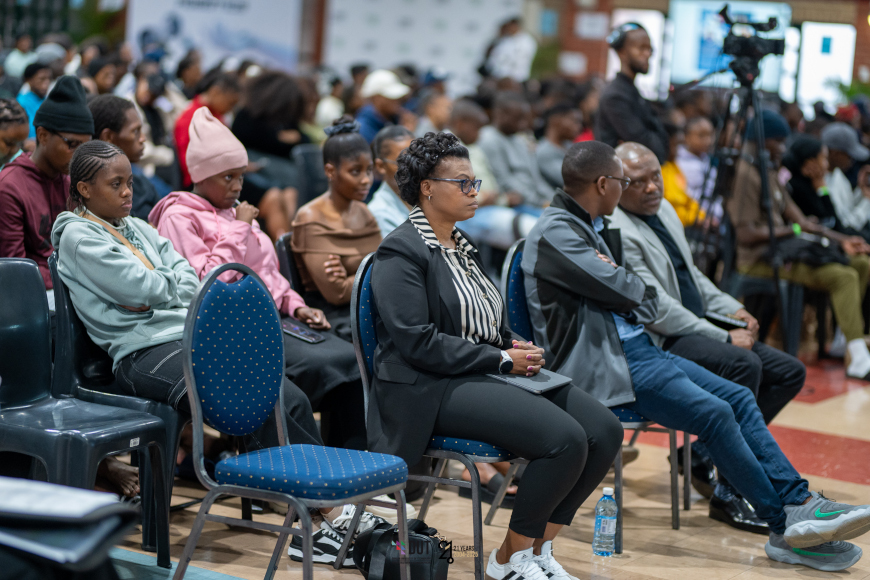The 2025 IEEE Conference on Information Communications Technology and Society officially kicked off with an exciting Student Symposium that was held at the Durban University of Technology (DUT) Ritson campus hall in Durban on Tuesday, 22 July 2025. This collaborative event was hosted by DUT’s Faculty of Accounting and Informatics in partnership with the Faculty of Engineering and the Built Environment.
The event brought together students, academics, and industry leaders. The symposium served as a dynamic platform to explore the intersection of ICT, engineering, and society. The theme focused on future proofing digital innovations while embracing ethical considerations, digital finance, artificial intelligence, and the role of emerging technologies in solving real-world challenges.
Prof Sudesh Rathilal, Acting Executive Dean of Faculty of Engineering and the Built Environment (FEBE) at DUT, warmly welcomed esteemed guests from across various countries, as well as students and staff from DUT. Prof Rathilal stated that each of the esteemed individuals would share their expertise in cutting-edge fields such as ICT, data science, digital finance, and engineering. He added that participants would engage in useful discussions, participate in a specialized data science workshop, and benefit from insightful presentations by industry partners on emerging technology checks.
Professor Oludayo Olugbara, Executive Dean of the Faculty of Accounting and Informatics (FAI), recently shared a powerful vision for transforming education. He believes that traditional teaching methods are no longer enough and that they need to focus on practical skills and real-world problem solving.
To achieve this, Prof Olugbara introduced the Engineering Practice, Innovation, and Project-based (EPIP) teaching model. This approach will help students to develop the skills they need to succeed in the real world by working on practical projects and solving real problems.
The EPIP model is especially important for African education, which faces challenges like high costs, limited resources, and a curriculum that does not always match the needs of the job market. By teaching practical skills and encouraging entrepreneurial thinking, this can better prepare students for the future. Prof Olugbara’s vision is to create an education system that produces adaptive learners who are equipped to make a positive impact.
The day featured inspiring talks from industry experts, including sessions on AI and automation, IoT in agriculture, and the future of work. Students actively engaged in discussions, panel sessions, and workshops, showcasing their enthusiasm for driving change through tech enabled solutions.
Prof Matthys Swanepoel, Deputy Dean of the Faculty of Accounting and Informatics, closed the symposium by encouraging students to remain determined and strategic in their academic and professional journeys.
The event set a strong tone for the rest of the ICTAS 2025 conference and highlighted the power of interdisciplinary collaboration and youth innovation.
Pictured: Students and industry experts in attendance at the symposium.
Photographer: Khulasande Tshayile
Writer: Siphokazi Dlamini/Phiwayinkosi Sibiya

